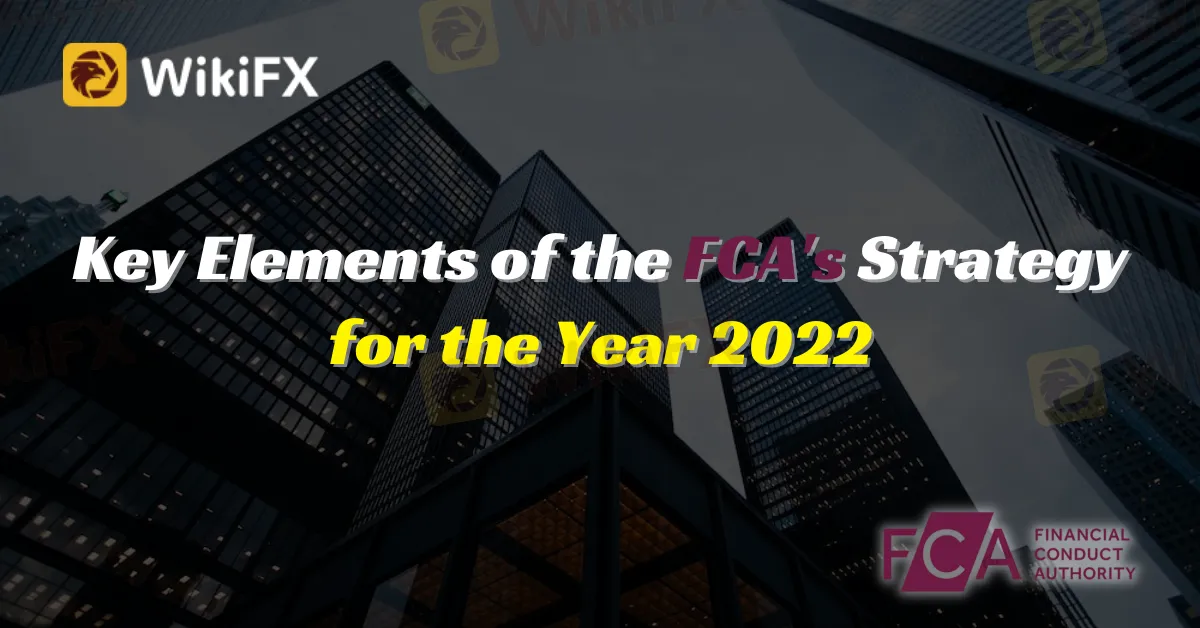Abstract:The FCA announced a new three-year plan in April to enhance outcomes for consumers and markets.

The plan is divided into three parts: decreasing and avoiding major damage, establishing and testing higher standards, and encouraging competition and good change.
In response to this new policy, the FCA eliminated or altered over 8,000 potentially misleading advertisements in 2022, a 14-fold increase over 2021. It has also revoked the licenses of 201 companies for failing to satisfy minimal criteria. This action highlights the FCA's more data-driven and forceful strategy, which allows the regulator to quickly identify and address problem businesses and deceptive advertisements.
'This has been a challenging year for many individuals who have been suffering with the cost of living,' said Nikhil Rathi, Chief Executive of the FCA. As a result, it is even more critical that financial institutions satisfy our standards and treat their clients properly, especially those who are experiencing financial problems.
In addition to safeguarding consumers and assisting the vulnerable, we have dealt with extraordinary market occurrences and reviewed our regulations to ensure that our regulatory structure is fit for the future. We are working on adjustments to the way firms are listed in the United Kingdom that will boost growth and competitiveness while also continuing to assist creative and fast-growing businesses.
'This year, we welcomed over 1,000 new employees to the FCA, inaugurated a new office in Leeds, and accelerated our growth in Edinburgh.'

Minimizing And Avoiding Significant Harm
The FCA's action resulted in the restoration of nearly £30 million to individuals from firms operating without authorization. So far in 2022, the FCA has given over 1,800 warnings about possible scam businesses, 400 more than the previous year, and the FCA's consumer portal has saved £7 million from scammers.
The FCA reacted to rising living costs in accordance with its risk-aversion policy. The FCA reminded 3,500 lenders of how they should assist borrowers in financial distress. The FCA also ordered 32 lenders to modify how they handle clients, which resulted in 7 businesses paying £12 million in compensation to their customers. Insurers were also cautioned to keep payments fair as inflation hits.
Steelworkers who got improper advice to transfer out of the British Steel Pension Programme (BSPS) can get restitution of up to £45,000 under the FCA's scheme to make financial advisors pay for unsuitable advice. The FCA also penalized Pembrokeshire Mortgage Centre £2.4 million for severe flaws in its advice to BSPS members.
Through the exercise of its authority and coordination with industry and regulators throughout the world, the FCA has also continued to monitor the orderly wind-down of LIBOR. It declared that the remaining GBP LIBOR settings will be phased out by the end of March 2024, and it requested that the remaining USD LIBOR settings be phased out by the end of September 2024. When the wind-down is finished, a contract worth more than 265 trillion US dollars will be converted from LIBOR rates to other rates.
Setting Greater Goals
The FCA disclosed plans to implement a new Consumer Duty in July, which would result in a significant transformation in how businesses service their consumers. The FCA applauds the significant progress and efforts made by a diverse variety of enterprises to achieve the Duty's obligations by July 2023 and underlines that it will adopt a pragmatic approach to overseeing its implementation. The Duty will empower the FCA to take action more quickly when it notices activities that do not provide the best results for consumers.
As part of its Consumer Investment Strategy, the FCA has also taken steps to assist consumers who wish to invest their money with confidence. It has outlined measures to simplify financial advice for consumers looking to invest in stocks and shares ISAs, as well as new guidelines to better how high-risk products are presented to prospective investors.
The FCA has increased its inspection of enterprises wanting to provide services to UK clients. In 2021/22, one in every five enterprises requesting to operate here was denied, up from one in every fourteen in 2020/21. Over the course of 2022, the FCA has hired 133 additional staff to assist with advances in the authorization process. This has resulted in a 50% decrease in the number of applications in the system since last December, as well as improved applicant vetting and an expanded remit.
The FCA continues to be aggressive in areas where it does not have jurisdiction, such as obtaining revisions to unfair and confusing Buy Now Pay Later arrangements. Prior to taking over regulation of the industry, the FCA collaborated with funeral plan providers, even those who did not get authorization, to ensure consumer protection.
Following Russia's invasion of Ukraine, the FCA moved rapidly. It enacted new, practical rules to enable asset managers to isolate problematic assets from the remainder of a fund. The FCA also backed the UK government's sanctions measures and moved quickly to ensure financial businesses were completing their commitments, including testing sanctions procedures and writing to over 10,000 firms.
Encouragement Of Competition And Good Change
The FCA intends to modify the way firms list in the UK as part of its efforts to increase growth and competitiveness in the UK, with the goal of attracting more high-quality, growing companies and providing investors with additional options. Separately, the FCA proposed guidelines to improve investor transparency regarding the diversity of boards and executive committees of publicly traded businesses.
The FCA has proposed changes to Listing Rules that have not been modified since the 1980s. This involves eliminating complexity, increasing market access, and allowing investors to make better judgments about the firms in which they invest. Along with this, the FCA has recommended measures to combat greenwashing and increase confidence in ESG goods.
The FCA is also working on the Wholesale Markets Review, which aims to boost the competitiveness of the UK's wholesale markets while maintaining the agency's strong regulatory standards.
The FCA remains a global leader in innovation, with 56 enterprises backed by new services like the Sandbox in 2022. It is offering more control and assistance to up to 300 newly approved or high-growth enterprises, therefore raising standards and promoting competitiveness.
This year, the FCA held its first policy sprint, bringing together 184 individuals from across the sector to discuss what future crypto asset regulation may look like. So far, 39 crypto asset enterprises have been registered under anti-money laundering regulations.
Stay tuned for more about FCA news.
Download and install the WikiFX App on your mobile phones through the download link below to stay updated on the latest news, even on the go.
Download link: https://www.wikifx.com/en/download.html











